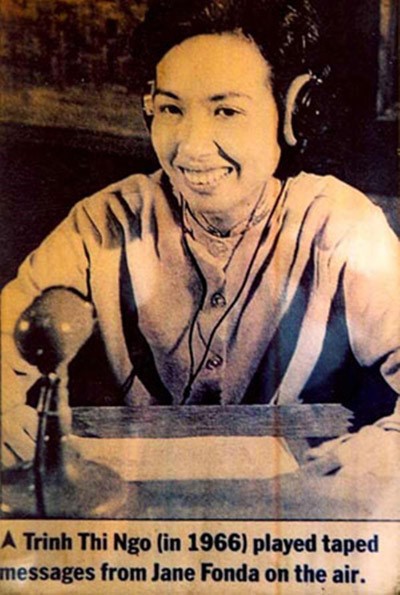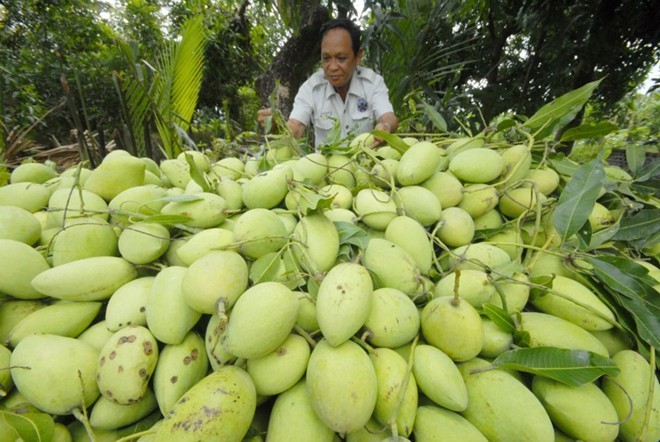A: First on our show today, we’d like to welcome back Prithwiraj Purkayastha of India to VOV. It has been such a long time since we last heard from you.
B: In an email to VOV this week, Mr. Purkayastha wrote: “First of all I would like to congratulate you all at VOV for producing and transmitting one of the best English language radio programs available in today’s radio world. I’m a long time listener of VOV. Recently I participated in a radio show with All India Radio where I talked on the present scenario of SW broadcast and I talked highly about VOV and how you are broadcasting quality programs and maintaining good listeners’ relationship. I also mentioned the time and frequency when listeners can tune in to VOV in India. I hope this will increase number of VOV listeners from Assam.”
A: Thank you very much, Mr. Purkayastha, for tuning in to and promoting our broadcasts to other Indian listeners. We’re very happy to learn about this. Your comments are a great source of encouragement for us to continue our broadcast on shortwave.
 Trinh Thi Ngo on an American newspaper in 1966 Trinh Thi Ngo on an American newspaper in 1966 |
B: We are celebrating Vietnam Revolutionary Press Day on Wednesday, June 21st. We’re so happy to receive congratulations and beautiful comments from our listeners who live far away from Vietnam. To mark the occasion, we often recall our journalistic career and our memories as English radio reporters, editors, and announcers. We never forget to mention our predecessors, especially our legendary announcer Trinh Thi Ngo, whose voice has remained in the mind of the generations of VOV listeners, including foreign friends and former GIs in Vietnam, who admirably called her Hanoi Hannah.
A: Ngo started to work at VOV in 1955 as an announcer for English broadcast.
Listeners from Southeast Asia and Northern Europe very much loved VOV’s English broadcast and Ngo’s voice
B: In 1965, when a large number of American troops were sent to southern Vietnam, Radio the Voice of Vietnam broadcast a program particularly for American soldiers. “A small talk to American GIs” gave them a correct insight into the war in Vietnam waged by the US.
A: Since then, Trinh Thi Ngo’s fame was associated with this program, which was aired at night after a long day of fighting. The opening sentence was: “This is Thu Huong, talking with American soldiers in southern Vietnam…” Initially, each program had been 5-6 minutes long and broadcast twice a week before it was extended to 30 minutes and broadcast three times a day. So each day, Ngo spent 90 minutes to have her voice broadcast to hundreds of thousands of American servicemen.
B: While talking with them, Ngo used the alias “Thu Huong”, but the American GIs called her “Hanoi Hannah”. Ngo explained that maybe because the program was broadcast from Hanoi. Hannah is an American woman’s name that starts with the letter H and her name Huong also starts with the letter H. American soldiers liked word games.
A: What came into the mind of American servicemen who listened to “A small talk to American GIs” was that Trinh Thi Ngo’s voice “makes them hate and fear but cannot resist.” Many of them, after listening to Ngo’s talks, sought ways to oppose the unjust war and come back home.
B: When the war ended, Ngo’s program ended as well. But many American journalists came to Vietnam to talk to her and many war veterans kept records of her radio programs.
A: On April 30, 1975, Trinh Thi Ngo was the first person to read the news in English announcing to the world Vietnam’s historical event: “Saigon is liberated, Vietnam is completely independent and unified.” After the liberation day, Ngo accompanied her husband to move to the south to live. And she worked at the Ho Chi Minh TV Station until her retirement. She died last October.
B: That’s a brief story about our predecessor announcer Trinh Thi Ngo or Hannah Hanoi, a story that we want to tell you on Vietnam Revolutionary Press Day when talking about our job.
A: Mr. Prithwiraj Purkayastha, we’ll send you a QSL card to confirm your report for the program on June 12 from 1600 to 1627 UTC on the frequency of 7220 khz.
B: Next is a letter from Shivendu Paul of India. In an email to VOV this week, Mr. Paul sent a reception report for the program on June 7th from 1600 to 1630 on the frequency of 7220 khz. He also shared a story about India’s popular fruits. He wrote: “Now in India the most popular fruit is Mango. Nowadays, we eat mango with our main dish, rice, fish curry, dinner roti, curry with mango. We serve mango to our guests with sweet and snacks. Mango is very sweet. I want to know whether mango is popular in Vietnam?”
 Vietnam is one of the largest producers and exporters of mangoes in the world Vietnam is one of the largest producers and exporters of mangoes in the world |
A: Vietnam is one of the largest producers and exporters of mangoes in the world. Its soil and climatic conditions enable production and market supplies of good quality fresh mangoes over a period of about five to six months.
B: Vietnamese mangoes are one of the most popular and best-loved fruits worldwide, and therefore, enjoy a prominent position in the international market. Because of its excellent flavor, attractive fragrance, beautiful shades of colour, delicious taste and healthy value, mangoes are now recognized as one of the supreme fruits in the world market.
A: In Vietnam, mangoes are mainly eaten fresh, but are also used in preparing squash, jam, and other preserves and sometimes canned. Young mangoes are used in making mango chutneys and pickles.
B: Vietnam’s mango varieties have been known for attractive colours, savoring smell, delightful taste and high nutritive value. The most popular commercial varieties - all different in colors and sizes, and each with a distinct flavour and taste - include Hoa Loc, Cat Chu, and Tuong mangos.
A: Shivendu Paul also suggested we arrange a monthly quiz competition for listeners. That’s a good idea. We’ll think about it and realize it when conditions are favorable. Thank you for contributing your ideas to our broadcasts.
B: This week, Jawahar Almeida of the US sent us an email reporting on a VOV broadcast on June 16th on the frequency of 7315 khz. He wrote: “I listen to your station quite often as you are one of the remaining few stations worldwide that are still on shortwave and I wanted to thank you for the good programming that you broadcast. I also have an interest in music from various countries and that is the reason for listening to you.”
A: Sharing interest in listening to music on shortwave, Paul Walker wrote: “I most enjoy the wonderful music you play and the mailbox program. I love music of all kinds.”
B: Well, we won’t keep you waiting any longer. Here’s a beautiful song dedicated to you and other listeners throughout the world. We hope to get more support and hear more from you.
A: Please send your feedback to English Section, Overseas Service, Voice of Vietnam, 45 Ba Trieu Street, Hanoi, Vietnam. Our email address is englishsection@vov.org.vn. Thank you for listening. Please join us again next Wednesday for another Letter Box edition. Goodbye.